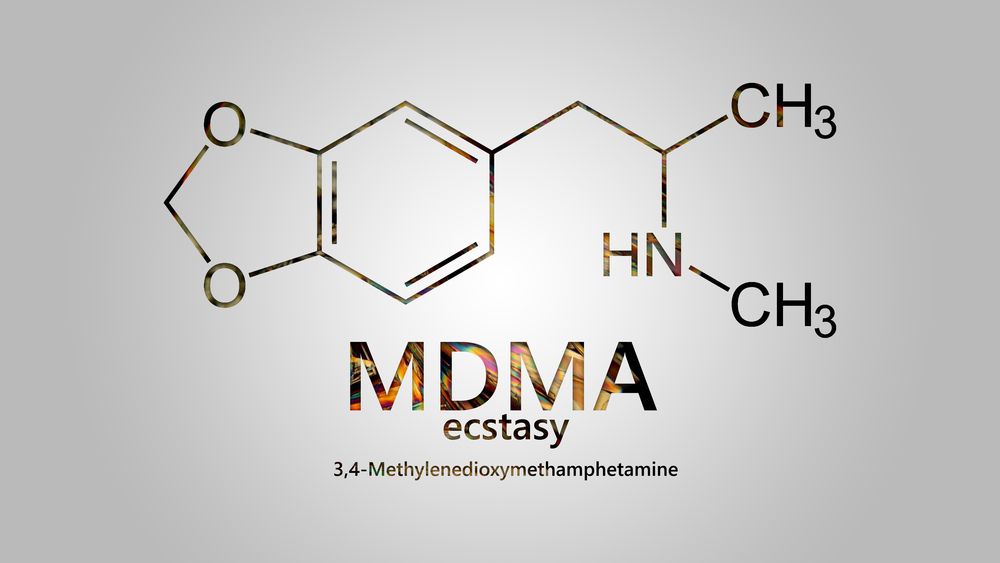MDMA
MDMA, scientifically known as 3,4-methylenedioxymethamphetamine, is a synthetic compound that has captured the collective imagination as both a recreational substance and a promising tool for psychotherapy. This article embarks on a journey into the heart of MDMA, unraveling its complex history, therapeutic applications, and its profound impact on mental health. Along the way, we'll underscore the importance of skilled therapists who guide individuals through the transformative realms that MDMA can unlock.

History
MDMA's story is one of serendipity and transformation. Originally synthesized in 1912 by the pharmaceutical company Merck, it remained largely obscure until the late 20th century. Initially developed as a potential appetite suppressant, its therapeutic potential went largely unexplored.
However, in the 1970s, MDMA emerged as a recreational substance and gained popularity in therapeutic and spiritual circles. Its ability to induce feelings of empathy, emotional openness, and insight drew the attention of therapists, psychologists, and seekers of personal growth.
In the decades that followed, MDMA experienced periods of both acceptance and prohibition. It was initially embraced by psychotherapists for its potential to enhance the therapeutic process. Yet, due to its association with recreational use and concerns about safety, it was classified as a Schedule I substance in the United States in the 1980s, limiting its availability for research.
Therapeutic Uses
Central to the therapeutic use of MDMA is the presence of trained therapists. These professionals guide individuals through the unique and profound experiences that MDMA can catalyze. Their role is akin to that of a compassionate and skilled navigator, ensuring that the journey remains safe and therapeutic.
MDMA-assisted therapy typically involves a series of sessions in which the therapist provides a supportive and empathetic environment. This setting allows individuals to delve deep into their emotions, memories, and traumas, often with greater ease and openness than in traditional talk therapy.
Mental Health Impact
MDMA-assisted therapy has demonstrated remarkable potential in treating mental health conditions, particularly post-traumatic stress disorder (PTSD). Clinical trials have shown significant reductions in PTSD symptoms among participants who received MDMA-assisted therapy. The empathogenic effects of MDMA can help individuals confront and process traumatic memories, leading to healing and recovery.
Beyond PTSD, MDMA has shown promise in addressing conditions such as depression, anxiety, and addiction. Its ability to foster emotional openness and empathy can facilitate breakthroughs in therapy sessions.
One of MDMA's defining features is its capacity to induce feelings of empathy, trust, and emotional intimacy. Participants in MDMA-assisted therapy often experience a profound sense of connection, not only with themselves but also with their therapists and fellow participants.
MDMA's effects can soften emotional defenses, allowing individuals to explore deeply rooted issues and traumas. This emotional processing frequently leads to lasting therapeutic insights and personal growth.
Following an MDMA-assisted session, individuals often report enhanced well-being, increased emotional resilience, and a greater sense of self-compassion. The therapeutic benefits can extend far beyond the immediate experience, guiding individuals toward long-term healing and transformation.
MDMA, a synthetic compound with a complex history, continues to evolve as a catalyst for healing and personal growth. Its therapeutic potential, when coupled with the guidance of skilled therapists, offers a unique path to understanding and transforming the human psyche. As we navigate the profound terrain of MDMA-assisted therapy, we uncover new dimensions of empathy, healing, and connection. In a world seeking innovative solutions to mental health challenges, MDMA stands as a promising beacon of hope—a testament to the enduring quest for understanding and emotional well-being.